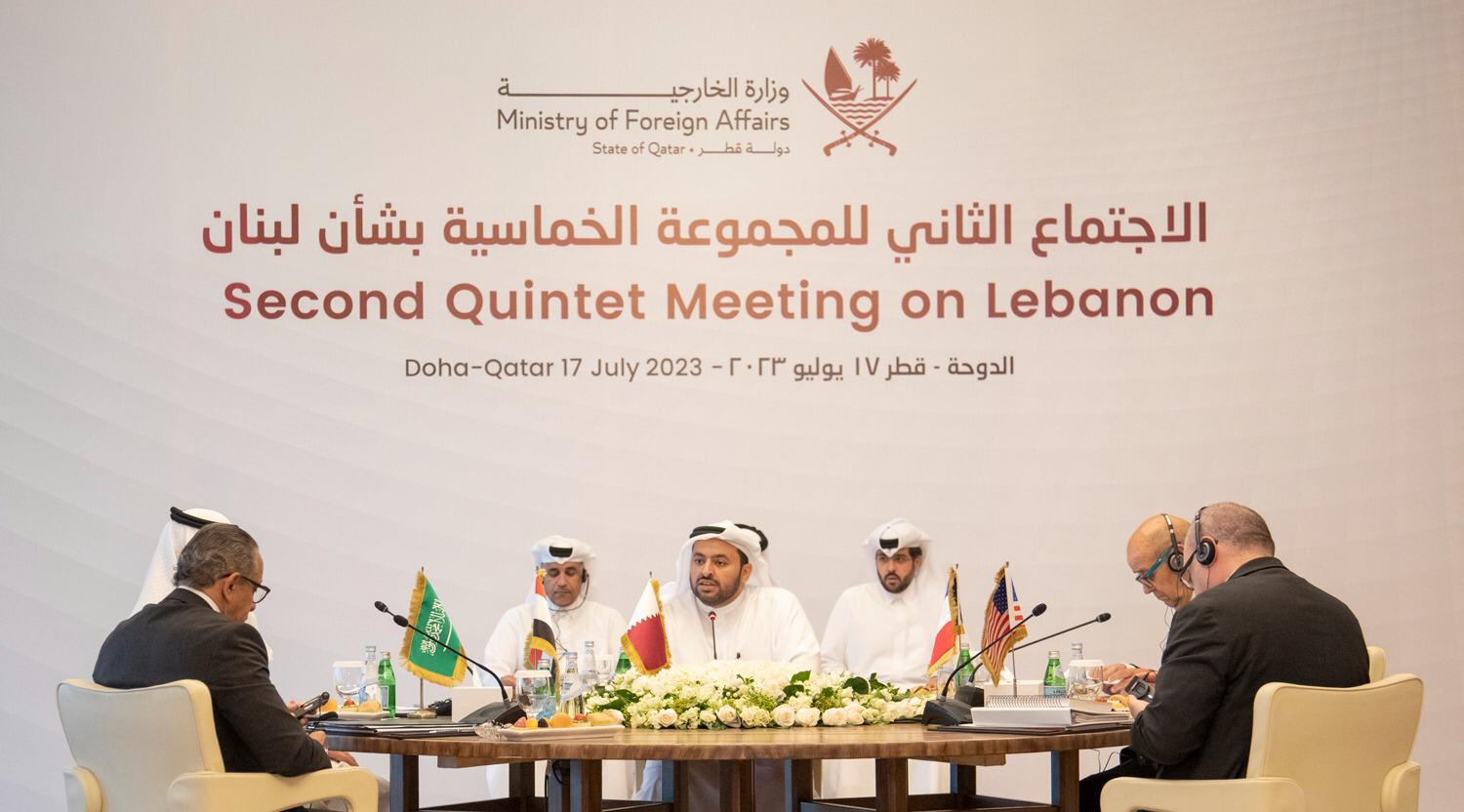The report did not disclose the name of the Qatari official scheduled to visit Beirut.
A Qatari envoy is reportedly visiting Lebanon this week as part of Qatar’s effort to break the country’s presidential impasse, Kuwait’s Al-Anbaa newspaper reported on Tuesday, citing political sources privy to the matter.
The report said the unnamed Qatari official’s anticipated visit to Beirut comes under the efforts of a quintet group seeking to fill the country’s presidency seat since former president Michel Aoun left office in October 2022.
The quintet group—Qatar, Saudi Arabia, Egypt, the United States, and France—held their first meeting in Paris in February under an initiative led by French Presidential Envoy for Lebanon Jean-Yves Le Drian.
The group held their second meeting in Doha on July 17, where the five members discussed “concrete options with respect to implementing measures against those who are blocking progress” in the election of a president.
The crisis-stricken country has failed to elect a president at least 12 times as it faces a deep division between Lebanon’s political parties, with each side pushing for its own preferred candidate.
There have been several names on the table among Lebanese politicians, including Army Commander Gen. Joseph Aoun, and Suleiman Frangieh, who is Hezbollah’s preferred candidate.
Breaking Lebanon’s political impasse is imperative to resolving the country’s economic crisis, the worst since the 1975 Lebanese civil war. The 2020 Beirut Port Explosion coupled with the COVID-19 outbreak contributed to the country’s worst economic downfall.
The Lebanese pound reached record low value this year, losing about 97% of its value to the U.S. dollar.
Israel and Hezbollah have been exchanging fire in south of Lebanon since the beginning of the Israeli aggression on Gaza on October 7, triggering fears of another war in Beirut.
In 2006, Israel waged a deadly 34-day war on Lebanon, killing 1,200 mostly Lebanese civilians. The war ended with Hezbollah forcing Israeli soldiers out after weeks of intense attacks.
On Tuesday, Israel killed a Lebanese soldier and wounded three others in the south of Lebanon, the United Nations peacekeeping mission in Lebanon (UNIFIL) confirmed in a post on X.
“The Lebanese Armed Forces have confirmed that a soldier was killed and three injured when their base was hit by the IDF today. This is the first time a LAF soldier was killed during this critical period. The Lebanese Armed Forces have not engaged in conflict with Israel,” UNIFIL said.
The Israeli occupation forces then issued a statement on X expressing its “regret over the incident” and that it was “under review” while maintaining that the Lebanese forces “were not the target of the strike.”
“The threat was identified within a known launch area and observation point of the Hezbollah terrorist organization, near Al-Awadi. Hezbollah’s activities in Lebanon are in clear violation of United Nations Security Council Resolution 1701,” the occupation forces said.
More than 110 people have been killed on the Lebanese side since the beginning of the border flare up, according to a tally shared by AFP on Tuesday.
The Lebanese government discussed an emergency plan on October 31 should a full-scale war break out.
Lebanon’s minister of environment, Nasser Yassin, said at the time that “there is political and diplomatic work being carried out” by caretaker Lebanese Prime Minister Najib Mikati “in order to protect Lebanon from Israeli attacks.”
French President Emmanuel Macron had sent Mikati a letter on November 5 warning that the presidential vacuum “weighs on the country’s ability to overcome the current crisis and prevent a deterioration in security linked to the ongoing war in Gaza.”







